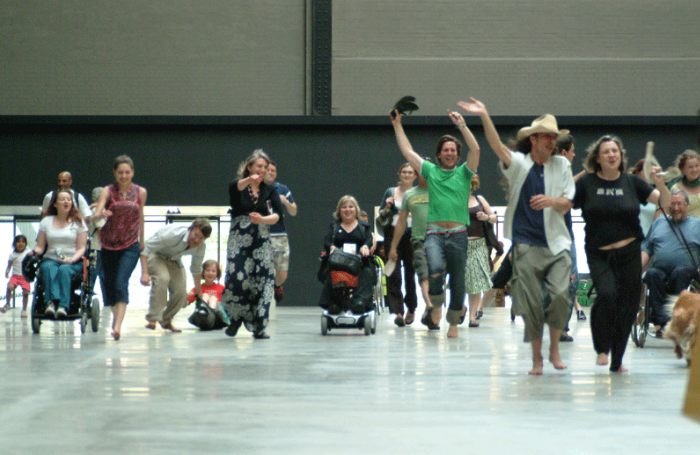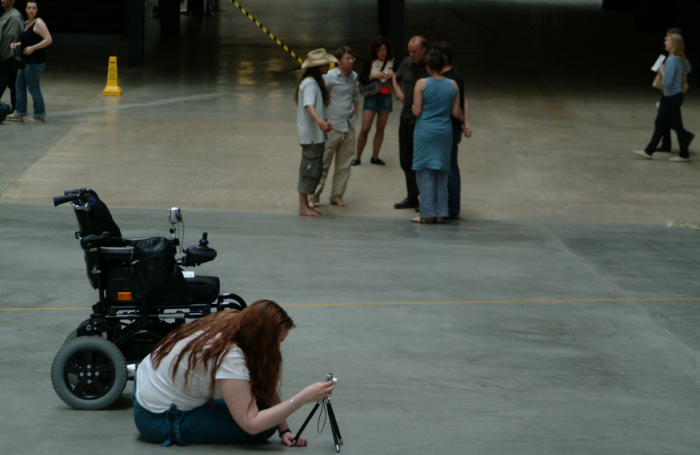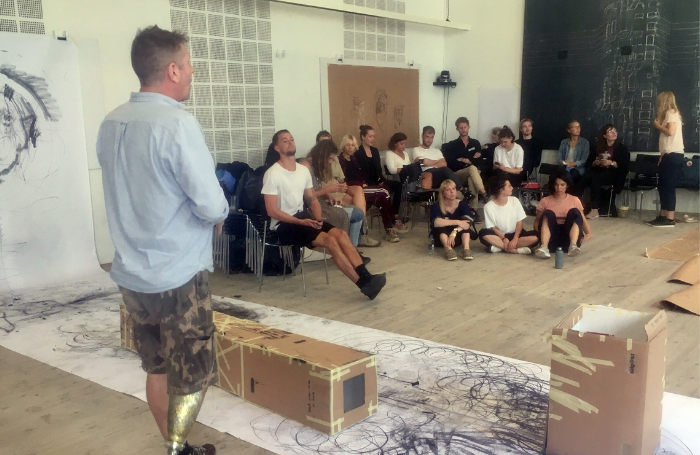Zoe Partington, Co-Director of The Disordinary Architecture Project and member of the RIBA North West EDI Group explains the value of the project ahead of International Day of Person's with Disabilities.

The DisOrdinary Architecture Project starts from the belief that improving the design of built space is not just about ‘adding’ disabled people to existing environments to better meet their ‘needs’.
Why?
We have to ask why disability has somehow remained consistently stuck in a non-historical, a-theoretical and, most crucially, seriously under-explored category in relation to building and urban design practices. It is invisible in both avant-garde and mainstream architectural theories and discourses, just as it has been a persistent absence in critical and cultural theory more generally. Perhaps this illustrates just how deeply disability remains widely avoided, compared to other disadvantaged identities. Unlike gender, race or sexuality – and the feminist, post-colonial and queer studies that underpin associated scholarship and debate – it seems that we assume ‘disability’ to be unable to bring any kind of criticality or creativity to the activity of architecture.
It is about starting from difference to expose and challenge underlying attitudes, assumptions and practices that frame disabled people in particular and limited ways, both in everyday life and through the education and practice of architectural and urban design. So, rather than providing yet more inclusive or universal design principles, we begin instead by challenging ableist attitudes and practices. We hope this can open up alternative kinds of inventive interventions – towards not just better inclusive design ‘solutions’ but also better understandings of how the ‘normal’ is constructed in everyday life, and how it can be critically and creatively contested, underpinned by a commitment to social and spatial justice for all.

In The Disordinary Architecture Project, we consider the problems as opportunities. These are the dilemmas, barriers surrounding approaches to social value in the built environment. Social value encompasses the significance of the historic environment to contemporary communities, including peoples sense of identity, belonging and place as forms of memory and spatial association; to design in new ways understanding how disabled people were segregated and excluded from the built environment gives you an insight into what needs to change.
My background as a disabled professional creative thinker and international advisor compliments Jos Boys' as an architect and academic. As co-directors, we work alongside architecture schools, architectural practices, urban designers, and museums, using creative practice to generate new ways of looking at the built environment, the collections and the archives.
One of our first workshops took place at Tate Modern and we called it "The Joy of the Turbine Hall." We brought disabled artists together with architects to learn from each other in teams of four. We made sure there was an equal balance of architects and disabled voices on each team. It was really important that this was facilitated to ensure disabled peoples creative voices were heard. Jos Boys also Co-Director of The Disordinary Architecture Project has spoken many times about certain sections of society, "being left out," and in my capacity as a disabled leader I am constantly coming up against ‘ableism’ and I am often ignored as professionals in a room look to the non-disabled person for the solution. I think it’s really important to hear everyone’s voices but at Disordinary we are very aware of the oppression disabled people and Deaf people are up against. Genuine issue – disabled peoples voices and insights are often ignored and not valued until a non-disabled person suggests the solution.
In order for architecture a more focused and inclusive approach from the bottom up needs to be the new ‘norm’.

The DisOrdinary Architecture Project was established in 2008. Since then, a network of disabled artists has collaborated with architecture, interiors and built environment students, educators, researchers, practitioners and other interested groups to co-create new and exciting ways to do disability differently in the design of built space.
Get in touch: disordinaryarchitecture@gmail.com.
The International Day of Persons with Disabilities is a worldwide event celebrated on 3 December 2021, to celebrate the lives and contributions of disabled people through disability art and culture, and in protest of the stigma towards disabled people worldwide. Disabled people have been celebrating this for many years and it is now much more widely recognised by our institutions. Set up by the UN in 1992 for disabled people, it is a day to celebrate and have fun and laughter and remember lost friends and colleagues.
The RIBA North West EDI Group brings together practices, schools of architecture and groups campaigning for change within the region. If you are interested in getting involved please contact riba.northwest@riba.org.









